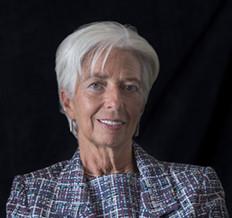By Gottfried Feyen, Contributor
Opinions expressed by Blog.GottfriedFeyen.com contributors are their own.
The year 2025 is well underway. Discussions around leadership, corporate responsibility, and emerging technologies are gaining momentum. One of the dominant topics: Artificial Intelligence (AI). The question is no longer if AI will reshape our working world. But how we as leaders will actively and responsibly shape this transformation.
Here are my updated Seven Leadership Trends for 2025, with a special focus on AI:
1) Keep it simple – even with AI
Technology should not add complexity—it should remove it. AI tools must help simplify operations and workflows. Leadership today means choosing smart solutions and applying them with purpose and clarity.
2) Redesign your leadership style
AI-powered performance tracking tools are valuable—but only when embedded into a transparent and human-centered leadership culture. Clear communication of expectations, shared purpose, and trust remain essential in a data-driven environment.
3) Invest in human capital 2.0
AI can handle tasks, but not inspire people. That’s why it’s more important than ever to invest in human potential — through feedback culture, continuous learning, and meaningful work. AI is a tool, not a substitute for leadership.
4) Do less, lead more – empowered by AI
Use AI to offload administrative burdens and focus on actual leadership. Let your teams take ownership and make decisions, supported by intelligent insights. Mistakes become learning moments. Leadership is about creating that space consciously.
5) Rethink “working hours”
The 9-to-5 model is outdated. With AI-powered systems, performance and growth can be tracked flexibly. Leaders must move beyond presence-based logic and focus on outcomes, purpose, and autonomy.
6) Make AI work for you
Leaders need to understand AI and make it work for them—not the other way around. From strategic planning to recruiting and performance analysis, AI should enhance your decision-making, not replace your judgment.
7) Just do it
Leadership is not theory—it’s practice. The best leaders learn by doing, especially in complex and tech-driven environments. Every person in an organization is like an atom—their energy and contribution matter. Decisiveness and openness are more critical than ever.
About the Author:
Gottfried Feyen is the founder and Principal of INTRES Advisory, a boutique business development and corporate finance firm with a strategic focus on AI-driven business solutions. He is also the initiator of RAKAMS.






